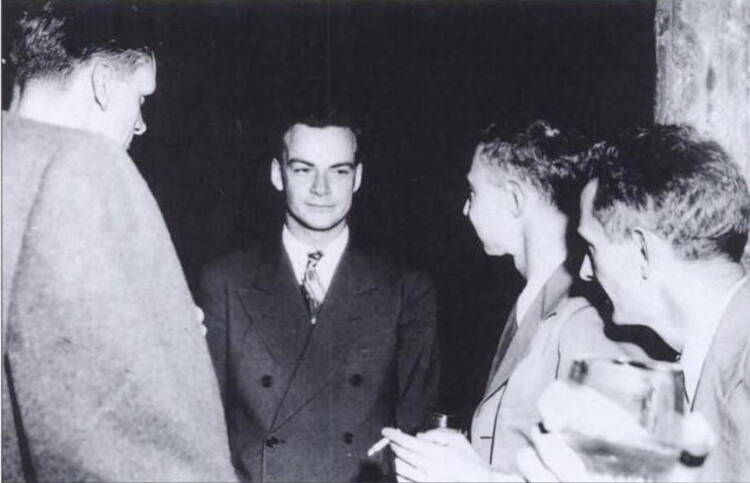Last week the California Institute of Technology announced that the full text of Richard Feynman’s Lectures On Physics are now available online for free, at feynmanlectures.caltech.edu.
You’ve perhaps heard of Feynman and his lectures (which have sold 1.5 million copies and been published in a dozen languages since being published some 50 years ago). But you may not be able to name something Feynman was known for, other than perhaps being a member of the Manhattan Project—which he actually had a very small role in; he would later relate that he was so bored at Los Alamos that he spent his time learning to pick combination locks, playing practical jokes on colleagues and doing Native-American drumming out in the desert.
In fact Feynman was a mathematical and scientific genius. Originally from the Bronx—and despite decades spent at CalTech, he never lost his accent—Feynman achieved a perfect score in math and physics on the graduate school entrance exams to Princeton. As a theoretical physicist he delved into many areas, from nanotechnology—which he was the first to theorize—to quantum electrodynamics (the way that light and matter interact), for which he won the Nobel Prize in 1965.
Yet for all the specialization of his work, Feynman had a passion for communication. “The real problem in speech,”he said, “is not precise language. The problem is clear language.”He believed that if an idea could not be clearly explained to a freshman in college, it was not yet fully realized. (He also said, regarding his work in quantum electrodynamics, “Hell, if I could explain it to the average person, it wouldn’t have been worth the Nobel Prize.”)
It was for this reason that in 1961 CalTech asked him to take over its two year introductory class in physics. It was an exhilarating time in the field of physics, filled with discovery, but the textbooks had yet to catch up, leading to dull and out-of-date presentations. Feynman took it as his goal to draw together the most exciting material of the day, present it in a manner that young people could understand and in that way inspire their own sense of discovery and wonder.
It was a tremendous success. Indeed, both his students and his colleagues loved the lectures so much they transcribed them, leading to the books that we have at our fingertips today.
Given the specialization of Feynman’s work, it might be hard to believe that his lectures could be truly comprehensible to laymen. But chapter one really does start with the basics: matter is made of atoms; atoms form molecules; in chemical reactions, some atoms break off and recombine. Feynman uses water to illustrate these concepts, and he speaks with such curiosity you can’t help but look at the full glass sitting on your nightstand with a whole lot more interest of your own.
In a wonderful interview Feynman did called “The Pleasure of Finding Things”(which can be found here on YouTube, and is well worth a watch), he responded to the critique that science is an endeavor that dissects the beauty out of everything. The “interesting questions…[of] scien[tific] knowledge”, he argues, “only add to the excitement, the mystery and the awe of a flower.”
His was a life directed by that same awe. Perhaps his lectures can instill the same in others even today.
Photo: Young Feynman with Robert Oppenheimer at Los Alamos








